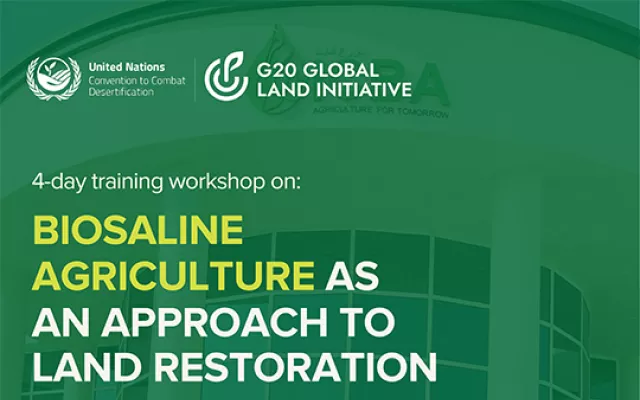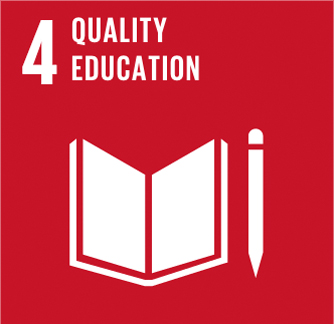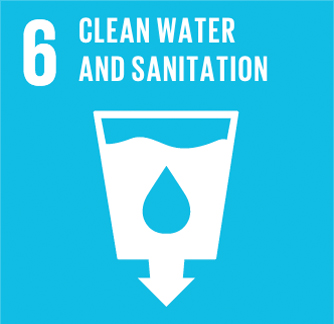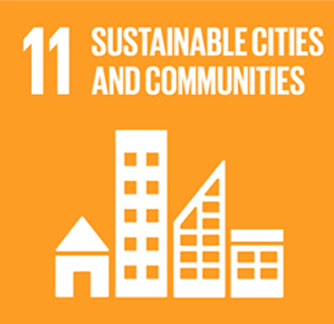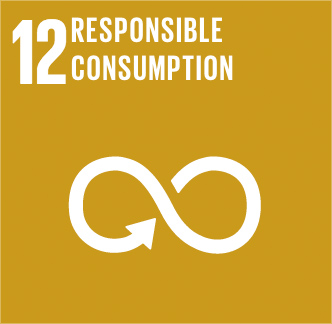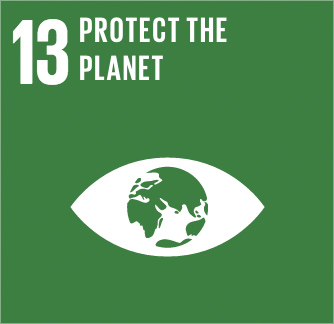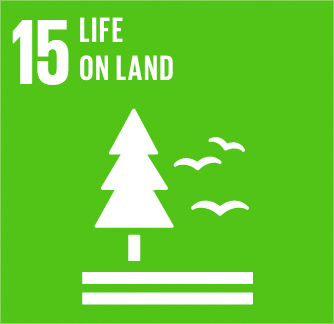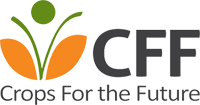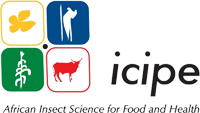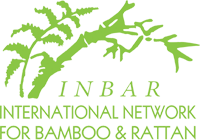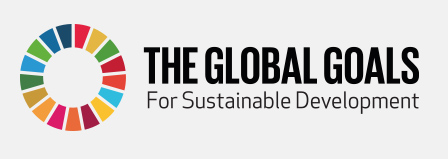
The new Sustainable Development Goals (SDGs) were adopted at the United Nations Sustainable Development Summit 2015 in New York. They replace the Millennium Development Goals which have achieved substantial changes in some, but not all areas. The 17 SDGs and 169 targets were developed in a process of consultations involving governments, civil society and many other stakeholders from around the globe, including AIRCA Centers such as AVRDC which played an active role in the formulation of SDG 2.
The Association of International Research and Development Centers for Agriculture (AIRCA, www.airca.org), is pleased to see that agriculture, food and nutrition security have a prominent place on the new sustainable development goals agenda, and its nine member organizations are committed to helping our partner countries in achieving these goals.
Supported by more than 60 member countries, which make up over 70% of the world's population, AIRCA members have activities in all major geographic regions and ecosystem types. All have a proven track record of research, development and implementation, working closely with farmers, extension systems, national research institutes, non-governmental organizations (NGOs) and the private sector across a wide range of crops and ecosystems.
The priorities and expertise of the AIRCA centers contribute directly to ten of the SDGs (below) and can help partner countries meet these goals as part of the national sustainable development action plans that countries are now developing.
Many of the ambitious goals and targets are linked and interdependent, for example, protecting biodiversity and food and nutrition security (SDGs 2 and 15), which for many countries cannot be separated. The landscape approach, to which AIRCA is committed as one of its founding principles, can provide a solution: it takes into account the diversity of interactions among people and the environment, agricultural and non-agricultural systems, and other factors that represent the entire context of agriculture.
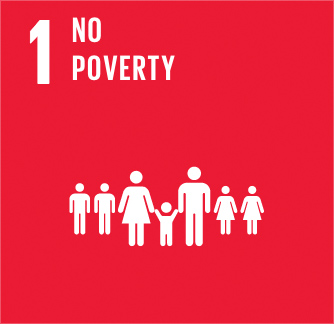 |
SDG 1: Eradicate poverty 75% of the world's poor live in rural areas, and the majority of them depend on agriculture for their livelihoods. Research has shown that overall GDP growth originating in agriculture is, on average, at least twice as effective in benefiting the poorest half of a country's population as growth generated in non-agricultural sectors. |
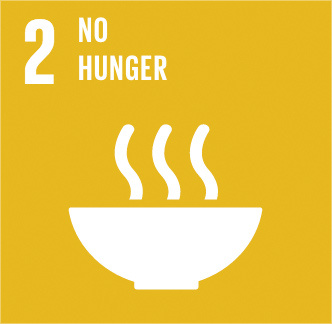 |
SDG 2: Food security and nutrition AIRCA's mission is "putting research into use by strengthening capacities for sustainable improvements to incomes, food and nutrition security in healthy landscapes". Large scale impact can be achieved with AIRCA's combined innovations that help smallholder farmers grow more and lose less, like soil fertility, seed health, integrated pest management and crop storage among others, as well as crop diversification which contributes to improved nutrition. New approaches to capacity building and technology, like the use of plant clinics and mobile communications, enable smallholders to increase their incomes, purchase food and improve family nutrition and livelihoods. |
|
|
SDG 4: Quality education and lifelong learning Education and learning are an integral part of AIRCA members' mandates, and many of them have since their inception been involved in capacity building of individuals as well as institutions, all over the globe. Nurturing particularly young people's interest and careers in agriculture is a vital part of tackling food security in a wider context. All nine AIRCA members are involved in capacity building and contribute to improving access to formal and informal education, from farmer to postgraduate level, and have literally reached millions of people. |
|
|
SDG 6: Sustainable management of water and sanitation Several AIRCA members work on "integrated watershed management" that support the SDG targets 6.5 and 6.6, a very important contribution linked to our landscape approach. A variety of successful innovations were developed by AIRCA members, which for example increase water use efficiency and productivity, as well as the use of non-traditional types of water like treated waste-water and saline water for agricultural production. Sustainable water management, including proper use of fertilizer with drip irrigation systems and methods that reduce soil erosion and groundwater pollution are also developed and promoted. Many of these approaches have been included in national policies. |
|
|
SDG 7: Sustainable energy Renewable energy sources are also part of AIRCA's experience, both at household and industrial levels. AIRCA members are active in research, development and promotion of a variety of opportunities to reduce the consumption of energy from non-renewable sources. For example production of tree-based biomass-energy on highly marginalized areas for sustainable energy production can also help countries to move ahead in providing clean and sufficient energy for all. Underutilized crops also provide opportunities for biomass production in a variety of conditions, for example in increasingly marginal environments. |
|
|
SDG 11: Sustainable cities and communities AIRCA members' expertise also directly supports SDG 11, for example using bamboo for climate-smart rural housing and construction, for thousands of years in many of the world's regions. Bamboo houses are strong but flexible, and affordable. There are many cases of bamboo's ability to withstand climate-induced natural disasters such as landslides or floods, better than stone or concrete. Affected by earthquakes in Latin America, for example bamboo structures remain intact, where concrete housing is largely destroyed. For carbon sequestration, estimates show that building a bamboo house produces just 60% of the emissions of an equivalent sized masonry home. |
|
|
SDG 12: Sustainable consumption and production patterns Strengthening of scientific and technological capacity is required in order to manage natural resources in a more sustainable way, which is a part of AIRCA members' mandates. This for example includes projects that build local agribusiness capacity with farmers and small-scale entrepreneurs. AIRCA also encourages companies to adopt sustainable practices throughout the agriculture value chain and to integrate sustainability into their production systems. |
|
|
SDG 13: Climate change AIRCA's interventions aim both at climate change adaptation (for example through improved seeds, cropping systems and methods, water utilization) and mitigation through the recommendation of appropriate eco-system based policies and practices like Nationally Appropriate Mitigation Actions in the agricultural sector, as well as Low Emission Development Strategies. Our research helps understand future conditions of climate, water resource availability and possible changes in crop production and can influence policies and investment frameworks. |
|
|
SDG 15: Land use Increasing the amount of land dedicated to agriculture cannot be easily accomplished and could have significant global impacts on biodiversity and ecosystem services, particularly water resources, terrestrial carbon and climate change mitigation. One of many example in AIRCA is the promotion of bamboo, which is used by many INBAR member states to prevent erosion at riverbanks and lake shores, while also providing an excellent source of fodder and food. Using marginal lands for agricultural production can also offer a solution to sustainable use of land resources. |
|
|
SDG 17: Partnerships for the goals The formation of AIRCA was stimulated by the need for integrated action to deliver sustainable agricultural intensification at the landscape scale, and has grown into a strong partnership of like-minded organizations. AIRCA has the capability and track record to address complex problems at a broad geographic scale across several sectors, including across boundaries, to increase income and improve nutrition in a sustainable way. |
We believe that AIRCA's mission to produce more food on the same or less land in a way that minimizes negative impacts on air, water, soils and biodiversity, will contribute to the SDGs. When combined with rural income diversification, off-farm income can be used to provide capital to support improved farming practices, reducing unsustainable land use in pursuit of increasing food production.
AIRCA members are committed to combining their experience of successful approaches, opportunities and challenges in moving farmers from a subsistence to a business basis - and their communities from poverty to prosperity.
In line with our mission to use research and knowledge to strengthen capacities for sustainable improvements to incomes, food and nutrition security in healthy landscapes, AIRCA is poised to support the global effort to turn the United Nations' Sustainable Development Goals into a reality.
AIRCA founding members:








